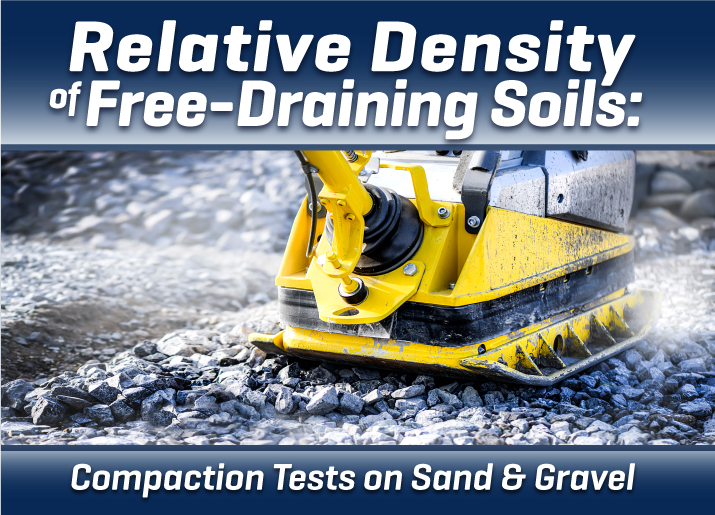
Field density tests determine the degree of soil compaction, which is used to estimate strength and stability. Read our blog to learn about soil characteristics and how relative density of soil is calculated.
Have questions about your materials testing equipment? We have the answers to these questions and much more right here! Check back monthly for long-form blog posts, how-to guides and infographics. We’ll address industry insights, the operation and maintenance of specific equipment, and our product line recommendations, all designed to better serve you.
Bookmark this page, add it to your RSS reader, or subscribe to our newsletter, so you never miss a hot topic.

Field density tests determine the degree of soil compaction, which is used to estimate strength and stability. Read our blog to learn about soil characteristics and how relative density of soil is calculated.
Determining relative density, or specific gravity, allows accurate conversion of volumes to gravimetric weights for proportioning materials. Learn more about relative density/specific gravity test methods and the equipment used to perform this laboratory test.
If you regularly perform asphalt theoretical maximum specific gravity (Rice) tests, the Gilson Rice Shaker is a time-saving tool to have in your lab. Find out why this unit is the key to determining accurate specific gravity determinations for asphalt, aggregates, and soils.